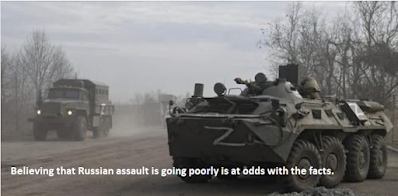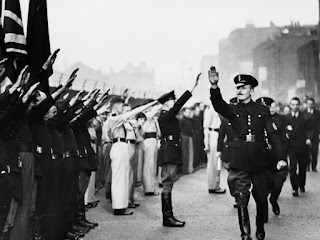Dear Helen Hayes
MP,
Thank for your
prompt reply. I must say that in terms of what came first and what happened
second, I do disagree with you. Right after the point when the Soviet Union
came to an end and Ukraine returned nuclear weapons, everything was alright.
Ukraine was facilitating passage of gas and oil from the Russian Federation to
the rest of Europe, consuming Russian gas and oil itself and paying for the
delivery of gas and oil that it consumed.
The second stage
was the time when it became clear that the economic situation was not the best
and some Ukrainian oligarchs were shown to be benefitting while the rest of
Ukraine was suffering.
The third stage
when payments for gas and oil were not made, the Russian Federation asked for
payments that were not forthcoming and the political situation become turbulent
and made worse by American politicians and EU politicians that saw an
opportunity to damage the relationship with the Russian Federation and this we
saw on the streets, is on record and it includes records of pseudo
demonstrators that were paid to demonstrate.
The fourth stage
was the rise of the paramilitaries that with or without authorization of the
central government of Ukraine started to alienate ethnic Russians.
The fifth stage was
the actual rise of the conflict in Eastern Ukraine when nothing was done to
deter paramilitaries and ethnic Russian had to arm themselves and ultimately
declared independence. Even at this point in time, they wanted autonomy, but
not total separation from Ukraine. It would have been up to the Ukrainian
government to tackle the paramilitaries to prevent a civil war.
For years on end,
about eight years, the Ukrainian government could have used whatever degree of
authority it had to impose the rule of law and prevent the actions of the
paramilitaries.
Instead of
providing support to bring the situation under control, the West aka USA used
Ukraine as part of its anti-Russian strategy. It was done with Iran because
Iran at the time was a close ally of the Russian Federation since the Russian
Federation provided nuclear fuel for Iranian reactors and it was done in Syria
that was also a close ally of the Russian Federation.
Iraq used to be a
buffer zone. In fact, Iraq itself was used before against Iran and at the time
the West looked the other way when Iraq used chemical weapons against Iran.
What happened was that with Iraq out of the way the whole balance in the Middle
East changed. Hundreds of thousands of Iraq flee Iraq after the American
bombardment and ended up in Turkey, in Lebanon, in Syria – to name a few
places. With Iraq out of the way, Turkey, Saudi Arabia and Israel started their
quest to fill up the gaps to create a new status quo. What happens in Yemen is
very much part of the same game with Britain, Saudi Arabia and USA cooperating
with each creating one of the worst human catastrophes because of their
conflict with pro-Iranian forces.
So the issues of
refugees is not new. It started big way with the disappearance of Iraq and of
Libya as buffer zones. Nowadays, the mass media have blamed Belarus from the
refugee flood. Let’s not forget that at one point EU was paying Turkey to
prevent the waves of refugees desperate to reach Europe.
President Reagan
promised Mikhail Gorbachev that with the Berlin Wall gone there would be no
further expansion towards the East. Promises that were not fulfilled. Expansion
continued apace with the threat of missiles right across the borders of the
Russian Federation. What happened with Ukraine was the trigger, but it was not
unexpected. The Russian Federation spoke about red lines that were crossed one
after another, completely disregarding the concerns of the Russian Federation.
Instead of delivering what had been promised, the so-called West – aka USA
started to implement sanctions after sanctions and this was rubbing salt in an
open wound.
Nothing has changed
and the same failing strategies of imposing sanctions go on, antagonizing the
Russian Federation ever more.
With regards to
energy, despite the conflict in Ukraine, the Russian Federation continues to
pump oil and gas towards European countries via Ukraine. Oil prices and gas
prices are rising and will keep rising and we will soon see political changes
not just in Europe, but most importantly in developing countries that can ill
afford the rising costs of energy. This happens at very bad time when we are
still recovering after two years of a pandemic that has generated vast
financial damages.
We had a choice of
bringing about changes via increased trade and development and now we are back
again implement the policy of guns. The new German Chancellor speaks about
increasing Germany’s defence budget by investing not less than 200 billion
Euro. How is this going to work? It is going to pump up debt at the expense of
everything else in a country in which there is galloping inflation. Let us
remember how we got to this point. In 2017, CDU/CSU with Angela Merkel barely
managed to form a coalition. She failed to form a coalition during the first
round of negotiations with SPD that refuse to form a coalition. She then tried
to form a coalition with FDP and Grünen and didn’t manage to do it. Then, as
last resort, she managed to persuade SPD to come onboard again. That was 2017.
In the recent Federal Elections, CDU/CSU collapsed from 41% to less than 25%
and SPD that didn’t increase its votes was in charge of forming a coalition and
did so with FDP and Grünen. How stable such a coalition will be remains
to be seen and energy costs will be a major factor.
If there is growing
unemployment, the patience of AG Metal, the biggest union in Germany, will run
out and support for SPD that is only represented in 11 of 16 Federal States
will collapse meaning the collapse of the German coalition.
Rebuilding the
German Armed Forces will not be green. It will require a lot of industrial
power mainly based in fossil fuels – coal being the major German resources
because Angela Merkel after the Fukushima disaster opted for dismantling German
nuclear plants. If Germany becomes unstable – since Germany is the main support
of the EU – the EU becomes more unstable.
The situation both
in political terms and in geopolitical terms will be solved with more economic
activity. Not less economy activity. Sanctions promote less economy activity.
Less economic activity promotes unemployment. Unemployment promotes political
instability. Political instability that the European continent does not need.
You can then cross to France and see what is happening in France. The
Socialists after Hollande are out of the game. What is left? Macron and two
branches of the so called Far Right.
I haven’t even
mentioned the Developing World. Argentina is drowning once again. More than 50
per cent of Uruguayan exports go to China. To name just these two countries,
what effect do you think financial issues and the rise of energy prices will
have in those two countries? They are not the worst off. Think about the
others. In the 1950s and 1960s the collapse of agricultural exports as agricultural
prices started to fall led to massive indebtedness followed by massive budget
cuts leading to political instability followed by military regimes. Countries
live in a cycle of unpayable debt and constant negotiation to refinance debts.
How much so-called democratic regimes can take before we are facing another
cycle of de facto regimes? In Argentina, there was a cycle of Justicialistas
and Radicales. Both of them have proven to be equally ineffective. In Uruguay,
the once powerful Partido Nacional and Partido Colorado have only been able to
survive by forming a coalition and this is something extraordinary, and this
coalition comes after the exhaustion of the so called Frente Amplio that itself
is in crisis. What are the political alternatives? Is there a political
alternative? What happens in Chile that was once one of the most promising
countries of Latin America?
You need to look at
the bigger picture. The sooner the present impasse comes to an end, the sooner
sanctions are lifted, and trade re-starts in a big way, the sooner we stop
talking war and start talking about economic development, the better we all
will be.
Look at the big
picture. What good came out of the struggle in Iraq, Afghanistan, Syria, Libya
and of other military adventures? Is the world a better place because of it?
Have you thought about Lebanon and the human tragedy that Lebanon is today?
We keep following
the same failed strategies of the US that it itself is a mess with Congress
having to pass again and again legislation to increase borrowing to prevent
paralysis of the entire Administration and ensuing chaos. Is this the model
that we want Britain to follow? Is this the model that we want Europe to
follow?
I keep repeating
myself and saying that Britain needs its own independent Foreign Policy. We
voted for Brexit not to be attached to the designs of the European Union, we
talk about trade opportunities, and the first thing we do is to use the same
past failed recipes that lead to confrontation, waste, and social chaos.
As Paul Samuelson
used to say, the choice is between butter and cannons.
Best regards
Karl Hohenstauffen







